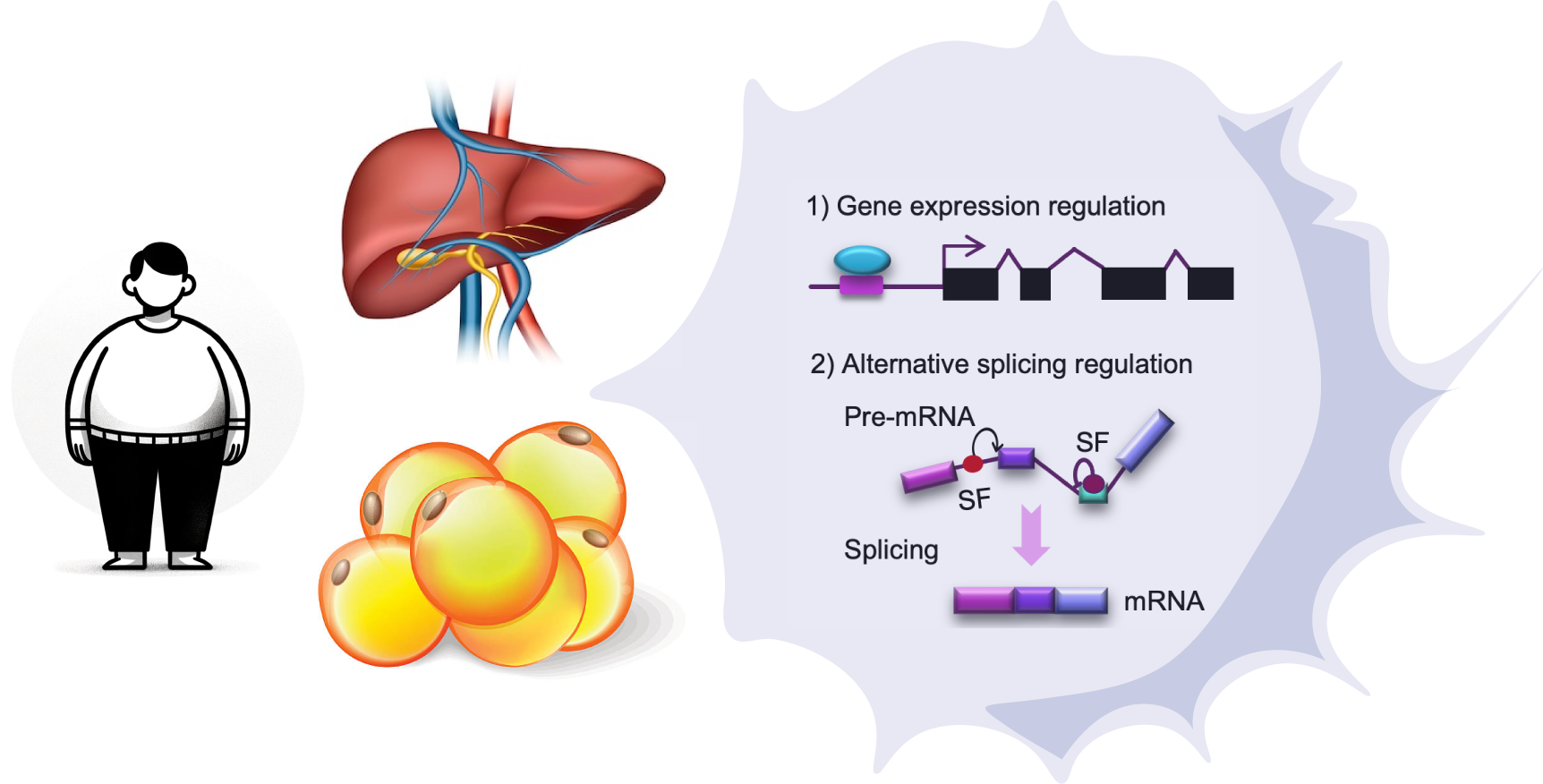Our Research
I. Unraveling macrophage transcriptional diversity in human metabolic diseases

Obesity represents a rapidly escalating global health crisis. Early in the disease, obese individuals often exhibit insulin resistance, a key factor that contributes to the progression of various non-communicable diseases. Our previous research has demonstrated that liver macrophages in insulin-resistant patients can produce non-inflammatory factors that regulate liver metabolism (Science Translational Medicine 2020). Our recent single-cell study has uncovered that liver macrophages comprise distinct subpopulations with different origins and functions (Nature Metabolism 2023). We are currently developing data-driven approaches to explore how alternative splicing influences the diverse phenotypes of human macrophages in the development of obesity and its associated diseases.
II. Developing AI/ML based diagnostics for disease state prediction

Another research area in our lab is to develop non-invasive diagnostic models that precisely predict patient disease states and monitor disease progression. Our approach is data-driven, integrating longitudinal patient data, state-of-the-art omics technologies, and innovative computational methods. Currently, we are focusing on developing artificial intelligence and machine learning models specifically for conditions like non-alcoholic fatty liver disease and COVID-19.
Funding
We are deeply grateful for the support provided by the following agencies. Thank you!!
